IMDEA Networks

Archivos: Events
Silver-lining: a firsthand vision of launching a technological start-up
Vishal Misra together with Dan Rubinstein launched at the beginning of 2011 the company Silver Lining. This company is a very ambitious tech start-up arising from two professors of Columbia University, and has already attracted a lot of interest and a substantial amount of funding from investors. Silver Lining is developing a very advanced product in the area of content distribution networks that is expected to have high impact. Vishal Misra, co-founder and its current CEO, will give a first-hand account on the development of this interesting initiative.
Seguir leyendo arrow_right_altIMDEA Networks Board of Trustees
Please note: Attendance restricted to members only
The meeting will be conducted in English
Seguir leyendo arrow_right_altVIII Feria Madrid es Ciencia
La Feria Madrid por la Ciencia (The Forum for Science) is a key part of the Programa de Ciencia y Sociedad (Science and Society Program) that the Regional Government of Madrid launched in 2000, through the Dirección General de Universidades e Investigación (Directorate-General of Universities and Research). This Program seeks not only to promote dialogue between citizens and scientists, but also to increase the public’s participation in science.
Seguir leyendo arrow_right_altMext Interim Meeting 2007: Focusing on nemo global development
Mext Interim Meeting 2007: Focusing on nemo global development
The conference will be conducted in English
Seguir leyendo arrow_right_altEl Consejo Científico internacional celebra con éxito su reunión inaugural
El pasado 11 de Julio la Fundación IMDEA Networks celebró la reunión anual inaugural de su Consejo Científico en Madrid. La reunión marcó un punto importante en el establecimiento de la fundación de la investigación. Este prestigioso Consejo se compone de once investigadores de los más importantes del Mundo en la tecnología de redes.
El Consejo fue presentado a dignatarios, incluyendo representantes senior de la Comunidad de Madrid, quienes crearon y fundaron la iniciativa IMDEA. Tras aceptar formalmente sus cargos como Miembros del Consejo, estos eminentes expertos consideraron varios aspectos de la estrategia científica de la Fundación, lo que ayudará a orientar la dirección de investigación que se debería perseguir en los próximos años.
Seguir leyendo arrow_right_altAll-path and Torii-HLMAC: beyond link-state routing protocols in shortest path bridges for campus and data center networks
The dominant paradigm in both IETF and IEEE 802.1 standards for shortest path bridges is based on link-state routing in layer two. This results on hybrid devices of router and switch.
Seguir leyendo arrow_right_altShaping and designing cellular systems
The objective of this course is to learn how to model cellular systems for the use in optimizing the design of this type of network. The course will consist of the following parts:
- A revision of basic queueing models
- Analysis of cellular systems with a single cell
- Channel reservation strategies possibility for the design of systems that optimize performance whilst minimizing the probability of interrupting current sessions
- Models and algorithms to support the different priorities of existing users
- Flow guarantees to different users through models of service differentiation
- Hierarchical cellular structures
IMDEA Networks Scientific Council
Nota: Asistencia reservada en exclusiva a miembros
Please note: Attendance restricted to members only
The meeting will be conducted in English
Seguir leyendo arrow_right_altA systems approach to network coding and random coding
A systems approach to network coding and random coding:
- Explain how network coding is used in wireless networks
- Show an example of random coding to implement network coding
This talk on network and random coding is of particular interest to researchers tackling wireless, P2P and multipath routing
Seguir leyendo arrow_right_altIMDEA Networks Inaugural Stakeholder Event
El pasado día 26 de Junio, IMDEA Networks celebró una reunión con los representantes principales de la industria cuyas compañías han sido invitadas a seleccionar un representante que forme parte de su Patronato, así como otras partes interesadas en el nuevo instituto de investigación internacional.
Seguir leyendo arrow_right_alt


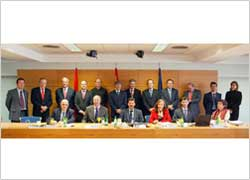

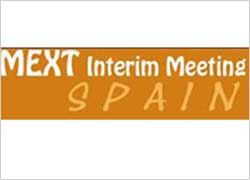
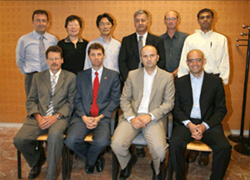

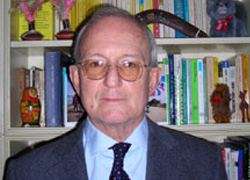
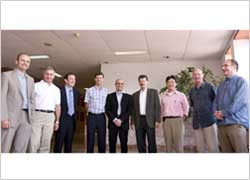

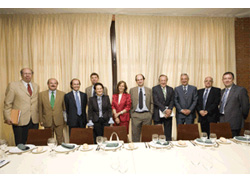
Comentarios recientes